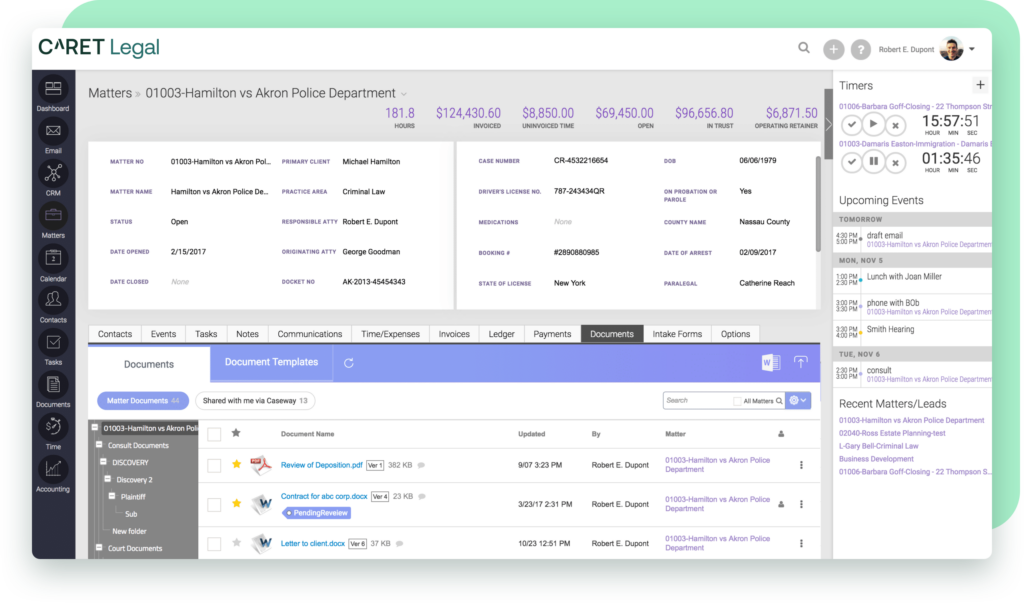Firms can leverage mediation tools to reduce costs, improve client outcomes, and enhance efficiency.
Rising expenses, including legal fees, court costs, and lost productivity, create challenges for firms aiming to manage disputes efficiently. Traditional approaches to non-compete disputes often worsen these issues by prolonging resolutions and increasing adversarial tension. Collaborative mediation, supported by technology such as legal practice management software, offers a cost-effective and streamlined alternative to litigation. This blog explores how firms can leverage mediation tools to reduce costs, improve client outcomes, and enhance efficiency.
The Role of Mediation in Non-Compete Disputes
Mediation provides an effective alternative to the traditional litigation process for non-compete disputes. Unlike litigation, mediation emphasizes collaboration and compromise, allowing parties to resolve conflicts more efficiently.
One of the greatest advantages of mediation is its ability to deliver faster resolutions. While lawsuits can take months or even years to conclude, mediation often resolves disputes within weeks, significantly cutting down the time and costs involved.
Another benefit of mediation is its ability to preserve professional relationships. By reducing adversarial tension, mediation enables parties to work toward mutually agreeable solutions, maintaining goodwill and avoiding the fallout of drawn-out courtroom battles. For example, a technology firm disputing a non-compete clause with a former employee might resolve the issue through mediation. By discussing concerns collaboratively, both parties can reach an agreement that protects the company’s interests while allowing the employee to operate their business within acceptable boundaries.
This process is also less financially and emotionally taxing for clients, who appreciate the savings and amicable resolution process. However, the success of mediation often hinges on the tools available to support it. Let’s explore how technology enhances the collaborative mediation process.
Technology’s Role in Facilitating Collaborative Mediation
Technology has transformed the mediation process, providing tools that enhance collaboration, improve efficiency, and simplify complex workflows. Legal practice management software is a crucial component for facilitating mediation in non-compete disputes. These platforms integrate features that support secure communication, streamlined workflows, and effective case management, ensuring that the process is both efficient and focused.
Key Features of Legal Practice Management Software include:
- Secure Document Sharing:
Allows attorneys and clients to exchange sensitive documents safely. Encrypted file-sharing ensures critical information like financial records or agreement drafts remains confidential while being accessible to all necessary parties in real time. - Real-Time Collaboration Tools:
Enable instant updates and joint editing of mediation documents, allowing attorneys, staff, and opposing counsel to collaborate efficiently without the need for lengthy email chains. This accelerates revisions and approvals, keeping the process on schedule. - Automated Conflict Checks:
Quickly identifies potential conflicts of interest by scanning case records and client data. This reduces administrative burdens and ensures ethical compliance before mediation begins. - Case Tracking:
Provides a centralized dashboard for tracking progress across all stages of the mediation process, from intake to agreement finalization. Attorneys and staff can easily view case status, ensuring accountability and minimizing the risk of missed steps. - Centralized Client Portals:
These portals allow clients to access case documents and pay invoices in one location. While primarily used for document sharing and payment, firms can supplement these tools with additional communication methods to keep clients informed throughout the mediation process. - Scheduling Tools:
Simplifies the organization of mediation sessions with shared calendars and reminders. These tools align meeting times across multiple parties and avoid scheduling conflicts that could derail progress. - Mediation Templates:
Pre-built templates tailored for mediation agreements save time during drafting. These templates can be customized for specific cases, ensuring that critical clauses are included while maintaining efficiency.

By incorporating these features, legal firms can significantly enhance the efficiency and transparency of their mediation strategies. These tools not only reduce the burden on clients but also help attorneys manage caseloads more effectively, enabling faster and smoother resolutions.
Achieve Cost-Effective Resolutions Today
Non-compete litigation can impose significant financial and emotional costs on businesses and law firms, but collaborative mediation tools provide a more efficient and cost-effective solution. By utilizing technology like legal practice management software, firms can streamline communication, eliminate delays, and foster collaborative resolutions that benefit all parties involved.
Firms looking to optimize their mediation processes and reduce litigation costs can turn to CARET Legal for intuitive, integrated tools that support every stage of the mediation process. Explore how CARET Legal can help your firm deliver efficient, client-focused solutions—schedule a free trial today to experience the benefits firsthand.
